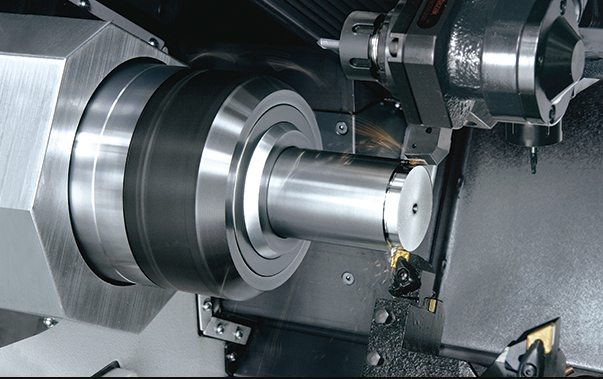CNC lathe machining is a high- tech machining method for machining precision hardware parts. At present, there are many kinds of CNC lathe processing, which can be classified according to a variety of different principles. Let's take a look at the two common classifications of CNC lathe processing.
Common Classification Of CNC Lathe Processing

✅According To Process Uses
General CNC lathe machining
This kind of CNC control lathe processing is the same with the traditional general lathe processing, there are CNC turning, CNC milling, CNC boring, CNC drilling and CNC grinding services. This kind of numerical control lathe processing is similar to the possibility of general machine, the difference is that it can process complex shape parts.
CNC lathe processing
This kind of CNC lathe processing is developed on the basis of general CNC lathe processing. It is on the general nc lathe with a knife library (which can hold 10-100), the cutting tool and the automatic tool change device consisting of a nc lathe with automatic tool change device (also known as the multistep or boring and milling machining center, CNC lathes customarily referred to as processing center), which makes the numerical control lathe processing to develop in the direction of automation and efficiency further.
Multi-coordinate CNC lathe processing
Some parts of complex shape can not be processed by three-coordinate CNC lathe, such as propeller, plane surface parts processing, etc., need more than three coordinate synthetic motion to process the required shape. So the emergence of multi-coordinate CNC lathe processing, which is characterized by more CNC control of the number of axis, the lathe structure is also more complex, the number of its axis usually depends on the machining process requirements of processing parts.
✅According To The Movement Trajectory Of The CNC Lathe
Point control CNC lathe processing
This kind of CNC lathe processing CNC device can only control the lathe moving parts from one position to another position accurately, that is, only control the coordinate value of the end of the stroke, in the process of moving without any cutting. The speed and route of movement between the two relevant points depends on productivity. In order to have as high productivity as possible on the basis of accurate positioning, the movement between the two related points first moves fast to the new position, and then slows down 1-3 levels to make it approach the anchor point, so as to ensure its positioning accuracy.
Point-position linear control CNC lathe machining
This kind of CNC lathe processing, not only to control the position between the two related points, but also to control the movement speed and route between the two related points. Its routes are generally composed of straight line segments parallel to each axis. The difference between it and point-position control CNC lathe machining is that when the moving parts of the lathe move, it can be cut in the direction of a coordinate axis (generally can be cut along 45° diagonal, but can not be cut along any straight line slope), and its auxiliary functions than point-position control CNC lathes, for example, To increase spindle speed control, circular feed processing, tool selection and other functions.
Contour control CNC lathe processing
The control device of this kind of CNC lathe can continuously control two or more coordinate axes simultaneously. Processing should not only control the starting point and end point, but also control the speed and position of each point in the whole processing process, so that the CNC lathe processing in line with the requirements of the drawings of complex shape parts. Its auxiliary functions are also relatively complete.


